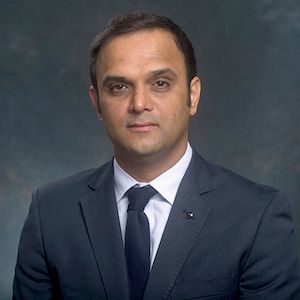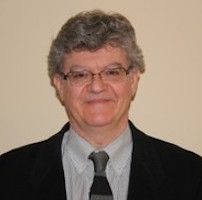Podcast
Introducing New Cancer Care Strategies to Patients
Dr. Mazzocchi talks of the promising new cancer care therapies and how to properly inform and care for patients with cancer who may be overwhelmed.
Cancer research is anything but stagnant, and with each new round of data on cancer comes a greater demand for the expansion of cancer care methods.
In the newest episode of Lungcast, American Lung Association (ALA) chief medical officer Al Rizzo, MD, spoke with Andrea Mazzocchi, PhD, co-founder and chief executive officer of Known Medicine, and adjunct professor at Wake Forest University, about the news strategies being deployed in the world of cancer research.
Previous coverage of their conversation touched on biomarkers, gene testing, targeted therapies, and new precision medicines. While some of those methods are new and very promising, they also present a very specific challenge.
For instance, biomarker testing has been used in upwards to 70% of patients in recent years, with the endpoint being 100% of the cancer patient population.
However, during the COVID-19 pandemic there had been a blatant disparity in medical knowledge and the efficacy of these new methods, which added to the challenge of reaching the level of deployment doctors hoped to achieve nationally.
“You know, we've been using chemo therapies for so many decades that to start to think about new targeted therapies can become overwhelming, and to really understand what those mutations, what targeted therapy means, and how do we build this into our new regimen can be quite challenging,” Mazzochi said.
Mazzocchi proposed that educating the public of these new methods through support systems could aid in ridding some patients of their hesitancy toward them, but she admitted some hospitals would need to make important changes to their infrastructure to adopt these systems.
Additionally, many of the new strategies that are being offered are time sensitive.
While the test result turnaround time for strategies such as gene testing have improved considerably (from a year or more to 6-8 weeks, generally), a patients’ status or condition can change quickly, which in turn presents problems with each treatment.
Cancer mutations presented a unique problem. If a patient’s cancer mutates and doctors are not immediately aware of the change, the targeted treatment they initially issued could be obsolete.
Mazzocchi urged doctors to be keenly aware of their patients’ conditions, and to issue appropriate treatments immediately to avoid complications.
Additionally, Mazzochi spoke of the new technologies that are being used to treat cancer in patients. She touched on ex vivo cell culture therapy, EGFR therapies, and the act of “taking the experiment out of the patient”.
In many ex vivo cell culture therapies, doctors can extract cell samples from tissue biopsies, tissue resections, and blood samples and test them on upwards to 100 different therapies. The results from those tests can them be transferred directly to a patient’s oncologist.
“This is really powerful because now the experiment is out of the patient (and) into a plate, and we can really see how they are responding (to) these chemo therapies, targeted therapies or immunotherapies will work for that specific patient,” Mazzochi said.
To learn more about newer technologies, genetic testing, therapies, and more referenced in the interview, watch the video above.
To hear all of Dr. Rizzo’s conversation with Dr. Mazzochi, listen to Lungcast below.




